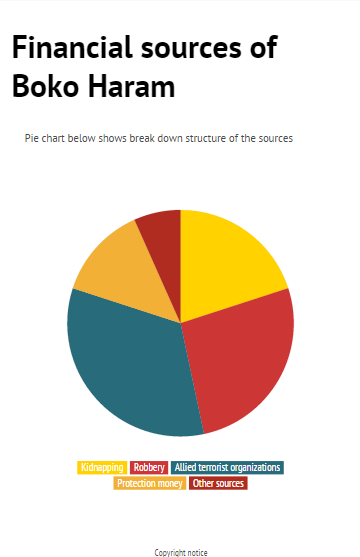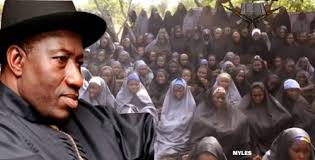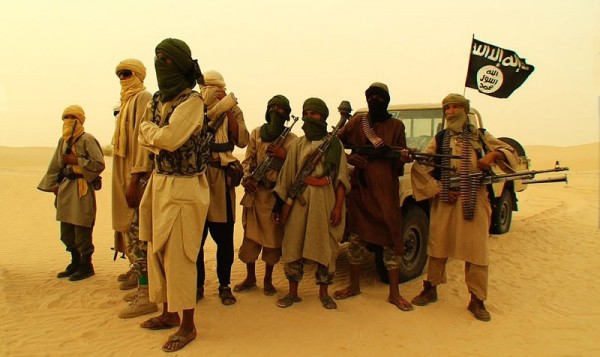For more than 10 years of existence of the radical Islamist movement, Boko Haram has significantly worsened the political situation in Nigeria. Since its formation in the early 2000s, the militia has been carrying out violent attacks around the country. Since 2009, when the group’s founding leader was killed and replaced by his second-in-command, the attacks have grown significantly more violent and intense.
Despite the poverty in northern Nigeria, where 70 per cent of people live on less than 60p a day the Boko Haram terrorist group has at its disposal a seemingly limitless amount of heavy weaponry, vehicles, bombs and ammunition that it uses to kill with unfathomable wantonness. Boko Haram is very well-funded, with the ever-increasing cash flow.
The expensive equipment prompted the questions about who is funding Boko Haram’s campaigns. And here are the most probable set of financial sources…
Kidnapping
Kidnapping has become one of Boko Haram’s primary funding sources. Within last year, Boko Haram secured $3 million and the release of 16 prisoners in exchange for a French family of seven it seized in northern Cameroon.
Also they are widely suspected of carrying out dozens of other abductions-for-ransom in northern Nigeria. Virtually all of the kidnapping victims were mid-level officials, or their relatives, who were not wealthy enough to have security details, but could afford modest ransoms of about $10,000.
The spokesman of JTF Mr. Musa states that intelligence available to the Task Force has indicated that Boko Haram Terrorists have resolved to concentrate more on kidnappings than robbery.
Boko Haram alleged that kidnapping is more lucrative, less dangerous and requires short time to plan and execute. Similarly, a special kidnapping squad has been earmarked and tasked by the Boko Haram sect to kidnap people who could be wealthy relations, politicians, business women/ men, traditional rulers, senior civil servants and foreigners alike.
Robbery
Along with ransom money, Boko Haram has partly financed its militant operations by attacking and robbing banks, says David Doukhan at the International Institute for Counter-Terrorism. The group has robbed hundreds of banks in its home province of Borno and two other northern regions of Nigeria, and nabbed convoys and successful businesses.
If that sounds not particularly pious for a fundamentalist religious group, the robbery is justified by Koranic interpretation that bank robbery is permitted, since the money from the banks is considered ‘spoils of war, Doukhanadds. Some estimates put Boko Haram’s thievery spoils at about $6 million.
Other Terrorist Organizations
Boko Haram is widely believed to have received funding from regional and international Islamist terrorist organizations, though how much and from which groups is in dispute.
The Daily Beast’s Eli Lake reports that the group received some early seed money from Osama bin Laden in 2002, through a disciple named Mohammed Ali who bin Laden sent to Africa with $3 million for like-minded militant organizations. The connection between Boko Haram and al-Qa’ida and its money perhaps deepened when Yusuf fled to Saudi Arabia to escape one of Nigeria’s first crackdowns on the terrorist group.It remains unclear what happened while he was in Saudi Arabia, or who he met, but Boko Haram leaders have later said that much of their funding comes from al-Qa’ida. A Boko Haram spokesman said in 2011: “Al-Qa’ida are our elder brothers. We enjoy financial and technical support from them. Anything we want from them we ask them.”
The US Treasury Department said in a statement to Reuters that the United States has seen evidence that Boko Haram has received financial support from Al-Qaeda in the Islamic Magreb (AQIM), an offshoot of the jihadist group founded by Osama bin Laden.
“Any financial support AQIM might still be providing Boko Haram would pale in comparison to the resources it gets from criminal activities,” said one U.S. official, speaking on condition of anonymity.
The group has also reportedly gotten money from Somali group al-Shabab. Hailemariam Desalegn, the visiting Prime Minister of Ethiopia said members of the radical Islamist sect, Boko Haram operating in Nigeria as well as the Al-Shabab operating in East Africa, get their funding from outside Africa.
But even such alleged financial connections with al-Qa’ida cannot explain Boko Haram’s money.
Drugs
A 2012 report from the Inter-University Center for Terrorism Studies alleges that Nigerian terrorist groups are financed by drug cartels in Latin America.
LaurettaNapoleoni, an Italian journalist and expert on terrorist finance, said this began to happen when the 2001 Patriot Act made it difficult to transfer drugs through the U.S. to Europe.
“Nobody wants to admit that cocaine reaches Europe via West Africa,” said Napoleoni. “This kind of business is a type of business where Islamic terrorist organizations are very much involved.”
Other Sources
Beyond drugs, Boko Haram has joined other criminal groups in Africa in the billion-dollar rhino and elephant poaching industry, according to a recent report from Born Free USA, a wildlife conservation organization.
“While impoverished locals are enlisted to pull the triggers, it is highly organized transnational crime syndicates and militias that run the poaching and reap the lion’s share of the profits, funding terrorism and increasingly war,” wrote New Scientist’s Richard Shiffman.
Using these extensive networks, Boko Haram members can smuggle anything from sugar and flour to weapons or even people across international borders. This, plus kidnapping ransoms and donations from abroad, is one of the most important factors keeping them in business.
Foreign civic groups
There are a handful of non-militant groups accused of shuttling money to Boko Haram, including Britain’s Al-Muntada Trust Fund and Saudi Arabia’s Islamic World Society. “Monetary practices embedded in Muslim culture, such as donating to charities and informal money-transfer centers, have compounded the difficulty in tracking down terrorist financial links,” says source at the International Institute for Counter-Terrorism.
Taxes and Protection Money
Boko Haram, may have received over $70million (N11.2billion) between 2006 and 2011 from its sponsors to conduct terrorist attacks.
This sum has been revealed by a retired Major of the U.S. Army, Chris Moghalu. The former military man and Intelligence Specialist made the disclosure on the African Independent Television (AIT).
Australian negotiator Dr Stephen Davis continues making shocking claims alleging that Boko Haram passes a large amount of their finances through the Central Bank Of Nigeria (CBN).
However, the Central Bank of Nigeria has debunked report that it is funding the activities of the dreaded Boko Haram sect.
This comes a few days after the expert, who had spent 4 months in Nigeria’s North-East negotiating for the release of Chibok girls abducted by insurgents on April 14, said some politicians from the opposition sponsored Boko Haram.
According to Davis, one of the biggest suppliers of arms and military uniforms to Boko Haram lives in Egypt and receives money sent by political sponsors from Nigeria. However the legal transaction of the funds is carried out with the help of the CBN, Davis added.
What experts agree on is that one of the best ways to stall Boko Haram is to cut off its funding. But how to do that remains unclear. The group is an entrenched part of life in northern Nigeria, possessing control and influence, and even collecting taxes.
Source: Naij.com








Please ask youself…….who pays to boko haram?